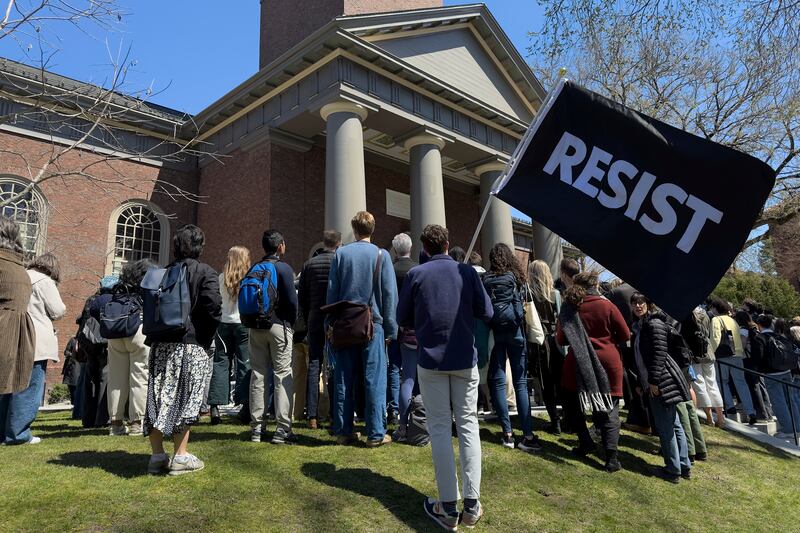Okay. I admit it. I graduated from Harvard.
But the Harvard of 45 years ago seems very different from what we hear is happening on campus today. Harvard is being accused of allowing antisemitism and shutting down conservative viewpoints.
Let me be clear. That any Jewish person on campus would feel uncomfortable, silenced or unsafe is simply unacceptable. There were a number of Jewish students in my class and I don’t recall antisemitism ever even being mentioned.
If the teaching, course offerings and class discussions have undergone “ideological capture,” such that conservative opinions and values are scorned, that is an intellectual and educational failure. When I was studying at the school of government, several of the faculty departed for Washington when a new Republican administration was elected, and out-of-office Democrats came to repopulate the faculty. It was competence and experience, not ideological exclusivity, that the university promoted for our education.
If such egregious excesses really are happening, it is easy to understand why President Trump is angry. He has stopped over $2 billion in federal research funding to Harvard, which could decimate the extensive research labs and projects housed at the school.
Most recently, he has announced that international students can no longer attend Harvard. His administration has also begun steps to take away the school’s tax-exempt status. With this latter move, Harvard would cease to exist in its current form.
In a letter to the university on April 11, the Trump administration outlined the steps Harvard must take to save itself. These include subjecting student applications to federal government review to assure that they are merit-based. In addition, current and future faculty must be screened for viewpoint diversity subject to federal government review. In addition, academic centers that the Trump administration has identified as contributing to Harvard’s current problems will be subject to sanctions by the federal government. Deadlines are imposed and outside auditors must be employed to verify Harvard’s compliance.
I believe that by making an example of Harvard, the Trump administration may be able to redirect the course of American education. This is unprecedented!
But wait. Do we really want to set such a precedent?
What could happen if a future “woke” president decided to take aim at, say, BYU? Should the federal government, using the various levers at its disposal, be allowed to determine who is admitted, who can teach and what can be taught at a conservative private university?
Conservatives who believe in limited government should be deeply concerned with this heavy intrusion of the federal government into a private and independent school. As disturbing as are political protests against Israel, a key U.S. ally, and as upsetting as ideological capture by “woke” liberalism may be, we should guard against such a dramatic expansion of federal government creep.
Some of the actions demanded in the April 11 letter reveal the problems that inevitably occur when government meddles too much. For example, Harvard would be required to admit students based on grades and test scores, ham-handedly selecting the student body on the narrow intellectual ability to test well. Shouldn’t other things also be considered?
In addition, if the federal government determines that there is not enough viewpoint diversity, students would be admitted based on their political views. Does the federal government really want to encourage admission to top universities because of the political views teenagers pick up in high school? Sounds to me like a not-well-thought-out government mandate.
My wife and I were visiting southern China back in the 1980s when the reform of China‘s economic system was getting underway and personal freedoms were expanding. A student approached us on the street to practice his English. When he learned we were from Utah, he exclaimed, “Oh! The two most famous universities are Harvard and BYU!”
I am sure that BYU made his short list because the performances of BYU dance groups visiting China had recently been broadcast repeatedly on Chinese TV. Harvard made the list because it was, in his mind and in the minds of many others around the world, a preeminent educational institution.
In most countries, most of the top universities are government creatures. Not in the United States. Might it be that top-notch private, independent universities are part of what makes America great?
But what of the current serious failings that the federal government has identified at Harvard and other top-tier private universities? If you believe in limited government, you must also believe in the ability of private institutions to right themselves. What university is going to want to continue to suffer withering criticism as a place where some students cannot feel safe and where academic discussion is limited to only one point of view?
I believe that Harvard can right itself without requiring the heavy hand of the federal government to squeeze it. We do not want that precedent to be set.

